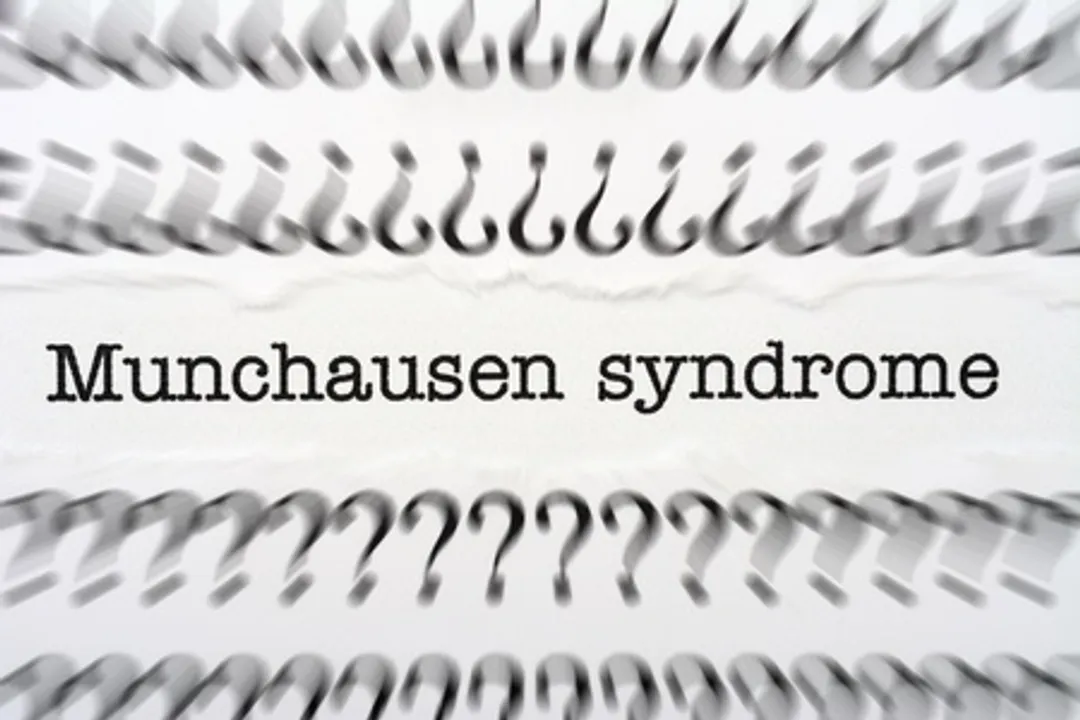Munchausen Syndrome By Proxy: A Plea for Patience & Objectivity

alexskopje/123RF.com
Munchausen syndrome by proxy (MSBP) has recently become a hot button topic, as the push for children’s safety has crossed the line into creating intrusive harm. Awareness of wrongful accusations of MSBP has increased ten-fold, thanks to a New York Times article by Maxine Eichner that adequately addresses the dangerous consequences that false allegations can have. Some medical professionals have even argued its very existence, drawing parallels between established mental illness diagnoses and familial history of abuse. Recently, MSBP accusations have soared, leading to a mistrust and decay of the patient/doctor relationship, particularly in pediatrics.
What is Munchausen Syndrome by Proxy?
MSBP is defined as a pattern of behavior in which a caregiver fabricates, exaggerates, or induces physical symptoms to those in their care. Often it is a parent who induces sickness in the child in order to get attention from medical personnel. It is difficult to establish true MSBP since the symptoms often coincide with the typical actions of a concerned parent. To help with the diagnosis and care of MSBP, some states, most notably Michigan, have created task forces against Medical Child Abuse . While well intentioned, the task force has muddied the water with vague and contradictory identifying factors being touted as end-all-be-all to identifying MSBP. According to the Michigan Medical Child Abuse Taskforce Handbook, some of the identifying factors of MSBP include:
- A child has one or more persistent and unexplained medical problems that do not respond to standard treatment.
- A highly attentive parent/caretaker is unusually reluctant to leave his/her child’s side.
- A parent/caretaker appears to be abnormally calm in the face of complications in the child’s medical course.
- A parent/caretaker insists that the medical provider do more invasive procedures, demands second and third opinions and gets angry when demands are not met.
- A parent/caretaker is not relieved or reassured when presented with negative test results and resists having the child discharged from the hospital.
- The parent/caretaker may work in health care or have unusually detailed medical knowledge.
Many of these symptoms are vague, general, and could easily be explained by a concerned parent who has a child with a chronic condition. Many could be applied to any parent in a stressful medical situation, particularly one in which he or she is searching for a diagnosis. Many medical professionals stuck in this ethical dilemma feel that it is better to over report than under report, but the “better safe than sorry” mantra does not hold true here. The impact of a wrongful accusation has the ability to rip families apart and harm children that are in need of medical care.
How to Properly Address a MSBP Suspicion
When you are presented with a situation where you believe MSBP is present, answer the following questions as per the American Academy of Pediatrics published guidelines:
- Are the history, signs, and symptoms of disease credible?
- Is the child receiving unnecessary and harmful or potentially harmful medical care?
- If so, who is instigating the evaluations and treatment?
If you feel as though the answers to these questions infer at least an inquiry into the legitimate nature of the child’s illness, then you need to investigate. According to the Cleveland Clinic, the incidence of a factitious disorder including MSBP is 2:100,000. More often than not, wrongful accusations are made without proper basis, and litigation against the physician or hospital follows. To avoid possible liability, some common sense steps should be followed.
Before reporting to state authorities, sit down and discuss the child’s condition with the parent or caregiver. Voice your concerns about excessive treatment and request that the parent cooperate with you to improve the child’s health by putting together a new, less invasive treatment plan. Sometimes a parent needs reassurance that he or she doing what is needed for the child. The overzealous attitude towards the child’s care may be a symptom of panic and concern for the child’s condition rather than an intention of harm. Discuss the child’s condition with other doctors or specialists involved. It may be difficult for a parent to effectively communicate everything he or she has been through. However, if the parent refuses to cooperate, continues to seek unneeded and excessive medical care, and the child is in immediate danger, child protective services should be informed.
Dangers of Wrongful Accusations
Wrongful accusations, described as “medical kidnapping,” have devastating consequences for everyone involved. The national story of Justina Pelletier brought wrongful accusations of MSBP into the forefront. Justina, a teen diagnosed with mitochondrial disease, was ripped from her family and kept in state foster care for 16 months before being able to return home. A doctor at Boston Children’s disagreed with the initial diagnosis she was given at Tufts and accused her parents of MSBP. This is despite the support of her diagnosis and care by well-regarded specialists. While in state care, Justina’s health deteriorated and she was denied the much-needed medical care for her condition. There is also the frightening story of Kennedy May Willey, whose parents are being threatened with CPS action from seeking a transfer of their daughter from CHOC to UCSF, due to a doctor’s excessive and misguided treatment for their daughter’s rare seizure disorder.
I wish I could say that Kennedy’s or Justina’s case was the exception to the rule, but there are countless families that are going through the same circumstances right now. The consequences of a baseless accusation can be far reaching. Some parents are lost in a sea of symptoms with no explanation, and suddenly seeking a second opinion is considered abuse. It is imperative that medical professionals take an extra step to ensure that any allegation is backed with credible evidence of abuse before seeking state assistance. Without some sort of objectivity or collaborative oversight, children will inevitably be destroyed by the same laws that were intended to protect them.
Related Posts
